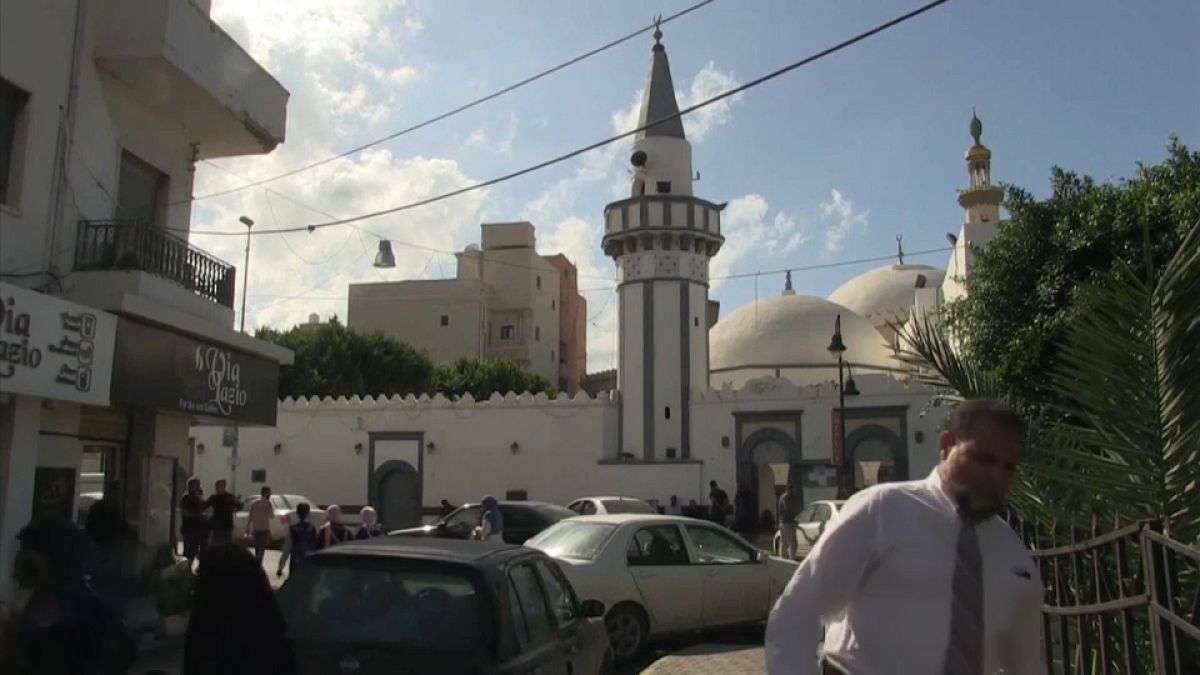With vital participants not attending and no clear agenda to guide the talks, there are slender hopes that the Italian hosts will be able to make progress on ending Libya's internal strife.
Important international and Libyan figures meet in the Italian city of Palermo on Monday with the objective of drafting a peace deal for Libya.
The conference is supposed to bring under one roof the leaders of the eastern and western governments, although at the 11th hour it was announced that strongman General Khalifa Haftar will not attend.
The Italian conference is a rival to a French initiative.
"No Libyan people are benefiting on the ground, we want the Libyan people who are at the bottom to benefit. The rival parties met in Italy, in Austria, in Switzerland, in Tunisia, and in Skhirat, we wanted something that will benefit the people at the bottom. There was no beneficiary, the parties were only the beneficiaries, all of them, and their children and their families only. The rest of the people are oppressed, There are crowded banks, everything is crowded, even crowded graveyards, wherever you go there are crowds," said Tripoli resident Mohammed Ramadan.
According to experts the conference is going to be another political exercise, because there is no veritable public agenda. Worse, no attempt is being made to co-operate between Paris and Rome.
"Despite the presence of figures considered important on the political scene, regardless of their position negatively or positively, I do not expect them to come up with something new or of value, it is almost a political meeting in response to what was done in Paris, but not much is expected from this. Because any meetings on resolving the Libyan crisis must be in accordance with rules and specific methodology, otherwise it is a waste of time and effort," says political analyst Dr Sami El-Atrash.
The French deny they are recognising the facts on the ground and preparing to install Haftar with December elections, but details are lacking about the logistics of the vote and how the difficult security conditions will be improved.
Last week a UN-mandated group organised rare meeting across Libya.
The findings by the non-governmental Centre for Humanitarian Dialogue highlight wide discontent of ordinary Libyans with a struggle between the two governments, rival armed groups, tribes and regions since the overthrow of Muammar Gaddafi in 2011. Libyans overwhelmingly want a national government that represents all parts of society and distributes resources fairly, the findings concluded.
The United Nations had mandated the centre to stage 77 meetings in 43 places across Libya to engage with all parts of society, a rare grassroots experiment in a country where few dare express themselves freely for fear of armed groups.
More than 7,000 Libyans participated in the meetings, some 30 percent of whom took part online as volatile security made it difficult to come in person, the group's 77-page report obtained by Reuters said.
For one meeting in the southern city of Sabha, shaken for years by tribal violence, rival groups agreed on a ceasefire to allow for the rare public meeting to go ahead, the group said.
The meetings were meant to prepare a national conference the U.N. wants to stage early in 2019 after having abandoned a plan to hold a vote in 2018 because of violence and political divisions.
Libya should start the process to hold an election in spring 2019 only after a national conference to discuss conflicts, U.N. Special Libya Envoy Ghassan Salame said.
"A common grievance expressed by participants in the consultation process was the lack of any government that genuinely represents and unifies the population," the report said.
"The great majority of participants also agreed that the immediate priority for a new government should be national reconciliation," it added.
Libyans are demanding a share distribution of resources and an end to looting by armed groups of oil and gas revenues, the real power holders.
"A sense of anger and bitterness about the economic situation was frequently expressed, especially with regard to the National Oil Corporation, the Central Bank, and Libyan assets abroad," the report said.


